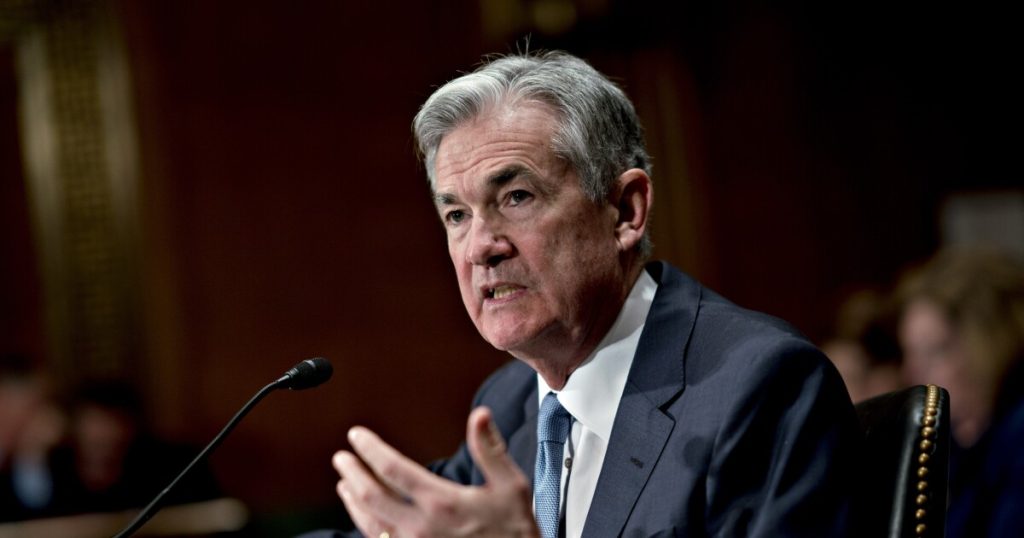Bloomberg News
Access to the Federal Reserve’s payments systems will no longer be predicated on a financial institution’s reputation, Fed Chair Jerome Powell told Congress this week.
In
“It may be that this whole thing with reputation risk needs to be thought about,” Powell said. “We’re taking that concept out of the one manual that we’ve been using for account access for master accounts;, we’re just going to take that out. But I think this needs a fresh look and I think it’s time for that.”
The manual Powell referenced is a handbook used by the country’s 12 reserve banks when determining whether a financial institution should be granted a master account, which would entitle it to the Fed’s various financial services, including bank-to-bank payment rails. It instructs reserve banks to “consider the conduct of the institution and its leadership” to determine if they would amount to a reputational risk for the Fed.
Powell said the impetus for removing that provision from the internal manual was Sen. Cynthia Lummis, R-Wyo., highlighting it
It is unclear what role perceived reputation risks have played in the inability of crypto-centric depositories — namely Cheyenne, Wyoming-based Custodia Bank and Kraken Financial — from obtaining master accounts, but the concern is that federal banking agencies have taken a view that crypto-based business models are inherently too risky and too prone to illegal activities to be permitted in the banking system.
Patrick Gerhardt, president of banking operations at Telcoin, a crypto payments firm that has
“Historically, it’s understandable with this new type of technology, new type of finance,” Gerhardt said. “We are long beyond that right now. We’re at a point where that reputational risk should be lifted.”
Reputation risk is a broad category of bank oversight generally applied to vulnerabilities not tied directly to an institution’s financial health. The idea is to ensure banks are not engaged in activities or practices that diminish their integrity in the eyes of depositors or shareholders, such as money laundering, fraud, mishandling of private information or even poor customer service.
But some in and around the bank regulatory space have said this category is too broad and gives supervisors the ability to downgrade banks that are operating safely and soundly. In 2014, former Comptroller of the Currency
“No one really knows what reputational risk means beyond the fact that a bank is doing something that a regulator doesn’t like but can’t quantify in terms of risk under the CAMELS [capital adequacy, asset quality, management, earnings, liquidity and sensitivity to market risk] rating system,” Isaac said.
Julie Hill, dean of the University of Wyoming’s College of Law, said it was a striking revelation that reputational risk factors into master account approvals, noting that the Fed has historically been secretive about its access policies and practices. The Board of Governors did not have public guidelines for granting accounts until 2022 and it did not maintain a database of account holders and applicants until 2023, she said, noting that both developments came after
“It’s this really big, amorphous concept,” Hill said. “And it wasn’t really clear what, if any, weight or impact reputational risk had on these master account applications, in part because the Fed just has not been transparent about how they evaluate them.”
Stephen Gannon, a partner with the law firm Davis Wright & Tremaine, said Powell’s commitment to remove the concept from the master account handbook is a sign that the Fed is joining other bank regulators in normalizing the integration of crypto into the banking system. But, he noted, that it is only the start of what should be a comprehensive process.
Gannon said the various guidelines and directives issued by regulators during the Biden administration regarding engagement with crypto activities will remain active until the agencies rescind or otherwise modify them.
“I’m encouraged by the chairman’s statements and by the statements of other regulators to the effect that — it appears — the deep freeze for crypto is going to thaw,” he said. “Those words need to be followed up with specific concrete actions.”
Bank policy experts see Powell’s comments on master account access and his broader commitment to taking a “fresh look” at
“It is not a coincidence that Powell’s comments come amid a legislative focus on debanking,: said Carl Fornaris, a partner at the law firm Winston & Strawn. “Hopefully, it signals the dawn of a more objective approach to master account policy.”
Still, some those in the banking space do not want to see the bar for entry into the federal payments system lowered too significantly. After all, several banking trade groups
Even crypto firms that would like to have their own master account one day say the standards for access should be high. Paul Neuner, founder and CEO of Telcoin, said Telcoin Bank — which received a conditional charter under Nebraska’s Digital Asset Depository Institution regime earlier this month — has gone to great lengths to insure it is operating by the books and he wants others to do the same.
“We’ve taken a long time to do this the right way so we want them to be cautious and conservative, we just don’t want them to discriminate against a particular technology because they think it is somehow a risk to the financial system,” Neuner said. “That was a shortsighted way they were looking at things from a particular incumbent perspective before.”

